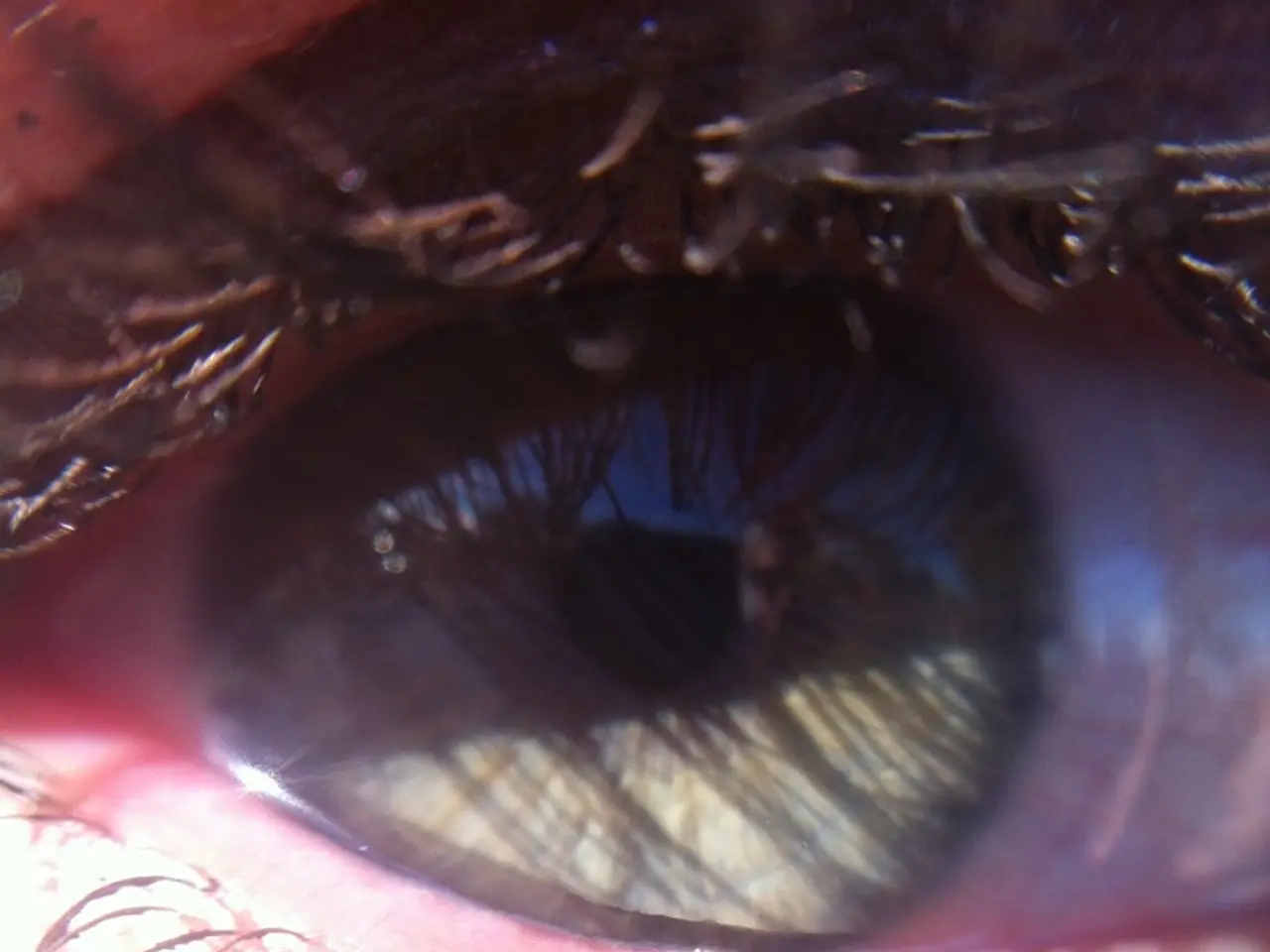How might prostate cancer impact intimate activities?
In the face of prostate cancer, men may encounter a range of physical changes that can impact their sexual health and confidence. According to the Centers for Disease Control and Prevention (CDC), prostate cancer is the most common non-skin cancer in men in the United States, affecting around 1 in every American men [1].
One of the main side effects of prostate cancer treatment, such as radiation therapy, surgery, or hormone therapy, is erectile dysfunction (ED). Research shows that the prevalence of ED after radiation treatment ranges between 20% and 45%, varying by treatment type and patient factors [2][3].
Radiation can damage the nerves and blood vessels involved in achieving and maintaining an erection, contributing to this sexual dysfunction [4]. The likelihood of developing ED after radiation therapy is affected by factors such as age, pre-existing erectile function status, combination of treatments, overall health, and comorbidities [4].
Sexual dysfunction can negatively affect men's quality of life, leading to psychological effects such as depression and performance anxiety, which may also impact partner relationships [2]. However, it's important to note that a person can find pleasure in sex again or return to previous sexual function after loss of sexual function due to prostate cancer treatment.
While prostatectomy is often associated with poorer long-term sexual outcomes, radiation therapy tends to have somewhat better preservation of sexual function, though ED remains a common side effect [2]. Advances in radiation techniques, such as the use of rectal spacers during radiation therapy, have been shown to significantly reduce long-term rates of ED by protecting surrounding tissues, improving sexual function outcomes [1].
Men experiencing erection problems post-radiotherapy are advised to seek early treatment, including medications like sildenafil (Viagra) and referral to specialists to optimize sexual health [4]. Oral drugs such as avanafil (Spedra), sildenafil (Viagra), tadalafil (Cialis), or vardenafil (Levitra) can help a person achieve an erection after prostate cancer treatment. A cream called alprostadil (Vitaros) can also be applied to the penis to help achieve an erection.
For those who wish to have children in the future, one option is to store sperm in a sperm bank before starting prostate treatment. In cases where medications or other treatments are not effective in helping a person achieve an erection, an inflatable implant may be an option.
Open communication with a partner makes it easier to agree on expectations and share concerns about changes in sexual function. Experimenting with new forms of intimacy, such as massages, videos, vibrators, and other aids, can help maintain a healthy sex life.
In conclusion, while prostate cancer treatment can lead to sexual dysfunction, advances in treatment techniques and supportive measures offer hope to reduce these side effects and preserve sexual function in many men. It is crucial for men to seek early treatment and communicate openly with their partners and healthcare providers to navigate these challenges and maintain a fulfilling sex life.
References: [1] American Cancer Society. (2021). Prostate cancer. Retrieved from https://www.cancer.org/cancer/prostate-cancer.html [2] National Cancer Institute. (2021). Prostate cancer treatment (PDQ®)–health professional version. Retrieved from https://www.cancer.gov/types/prostate/hp/prostate-treatment-pdq [3] National Comprehensive Cancer Network. (2021). Prostate cancer: radiation therapy. Retrieved from https://www.nccn.org/patients/resources/patient_guide/view.aspx?r=prostate&v=2.2021 [4] Mayo Clinic. (2021). Prostate cancer: Sexual dysfunction. Retrieved from https://www.mayoclinic.org/diseases-conditions/prostate-cancer/in-depth/sexual-dysfunction/art-20047765
- Men diagnosed with prostate cancer may face sexual dysfunction as a side effect of treatment, such as radiation therapy, surgery, or hormone therapy.
- Radiation can damage the nerves and blood vessels responsible for achieving and maintaining an erection, increasing the risk of erectile dysfunction (ED).
- Nearly 20-45% of men experience ED after radiation treatment, with prevalence dependent on treatment type and patient factors.
- Age, pre-existing erectile function status, combination of treatments, overall health, and comorbidities affect the likelihood of developing ED after radiation therapy.
- Sexual dysfunction can negatively affect men's quality of life, causing psychological effects such as depression and performance anxiety, and potentially impacting partner relationships.
- Prostatectomy may result in poorer long-term sexual outcomes compared to radiation therapy, but radiation therapy still commonly causes ED.
- Advances in radiation techniques, like the use of rectal spacers, have been shown to significantly reduce long-term rates of ED by protecting surrounding tissues and improving sexual function outcomes.
- Men experiencing erection problems post-radiotherapy should seek early treatment, which can include medications like sildenafil (Viagra) and consultations with specialists to optimize sexual health.
- Other oral drugs, such as avanafil (Spedra), tadalafil (Cialis), or vardenafil (Levitra), can also help achieve an erection after prostate cancer treatment, along with a cream called alprostadil (Vitaros).
- For those wishing to have children in the future, sperm storage in a sperm bank before starting prostate treatment is an option.
- In cases where medications or other treatments are not effective, an inflatable implant may be a solution for helping a person achieve an erection.
- Open communication with a partner about changes in sexual function makes it easier to agree on expectations and share concerns.
- Experimenting with new forms of intimacy, such as massages, videos, vibrators, and other aids, can help maintain a healthy sex life. Men should also stay informed about advances in sciences related to health, medical-conditions, chronic-diseases, cancer, health-and-wellness, sexual-health, mental-health, and men's health to better understand therapies and treatments available for sexual dysfunction caused by prostate cancer.




